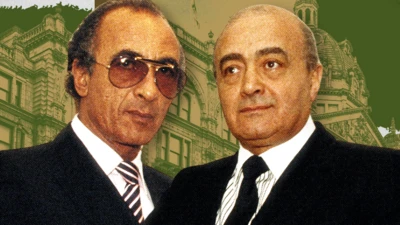We've updated our Privacy and Cookies Policy
We've made some important changes to our Privacy and Cookies Policy and we want you to know what this means for you and your data.
Rory in China: Lenovo's quest to be cool
- Author, Rory Cellan-Jones
- Role, Technology correspondent
China's Lenovo is on a roll. It has just been named the world's number one PC seller, and it has rapidly won the number two spot in mobile phones in its home market.
But the company knows it lacks one thing - even in China it isn't seen as a cool brand.
Eight years ago, Lenovo's takeover of IBM's PC division transformed a virtually unknown brand into a global contender.
It has built on that acquisition, renewing products like the Thinkpad, and in October, the research firm Gartner said the Chinese company had finally overtaken the long-term market leader HP.
But at Lenovo's headquarters in Beijing they know the contest is not over and they now have a new task - to build a brand which consumers love as well as respect. "My goal is that one day Lenovo can be recognised as one of the hundred most valuable brands in the world," says Arthur Wei.
This fast talking marketing executive who came to Lenovo from HP has already taken the company from nowhere to number one in the Russian market, and has been rewarded with a major role at headquarters.
Olympic designer
In an exhibition centre showcasing Lenovo's products over the years, Mr Wei proudly plays me a video of a recent launch, where a new laptop was unveiled in a glitzy fashion show attended by a crowd of excited celebrities. This, he indicates, is where a company that for years made dull beige boxes at keen prices is heading now.
But upstairs in Lenovo's design centre is the man who is vital to changing consumer perceptions of the business. Dressed casually in jeans and a grey turtle neck sweater, Yao Yingjia is Lenovo's equivalent of Apple's design guru Sir Jonathan Ive.
Mr Yao was the first industrial designer to be brought into the company in the 1990s. In 2008, he led the team which designed the Olympic torch for Beijing and he now heads a team which obsesses over the look and feel of every new product.
Caressing the Yoga Thinkpad - a laptop which converts into a touchscreen tablet - he talks in terms that sound remarkably similar to those employed by Apple's Sir Jonathan: "It's creating a new emotion," he says.
"It really touches the customer."
The Yoga is a good indicator of the thinking of a company that rejects the idea that the PC is dead but talks of a "PC plus" strategy.
Recognising that much of the innovation is now in the mobile computing area, Lenovo has been building a strong position in China's smartphone and tablet market, and is now moving into other territories.
It describes its approach as "protect and attack" - protect its lead in markets like China, while attacking new territories and product areas.
"It took us four years to become number one in Russia by utilising the attack strategy," says Mr Wei.
"We're also number one in India, and in Germany and Japan. So the attack strategy not only works in emerging markets but in mature markets too."
Foreign favourites
Yet for all this success, go out on China's teeming shopping streets and Lenovo's brand still seems to need some polishing.
The devices that attract attention and envy are those made by Samsung - whose Galaxy Note appears to be the smartphone of choice for young IT professionals - and of course Apple.
Chinese consumers have been snapping up Lenovo smartphones, but at far lower prices than what they seem willing to pay for an iPhone or a Samsung device.
In a Beijing apartment, we gathered a small focus group of three savvy consumers who worked in IT and asked them to name their favourite gadgets.
Each had an iPad, and on the coffee table there were phones made by Samsung, Nokia and Apple - but none named a Lenovo device as something they would show off to their friends.
When I asked them why that was the case, one man explained it like this. "I would brag about it, but only because it's a Chinese product - we have lower standards for homemade products."
Made in Hong Kong
Back at Lenovo's HQ, a guide showed me around an exhibition devoted to Lenovo's history.
It starts with a replica of the post-room or security cabin where a handful of people, all members of China's Institute of Computing, started the company in 1984.
Then there is the first product, an accessory for PCs allowing them to display Chinese characters for the first time - a big moment for early computer users in China.
But getting a licence from the government to make computers proved tricky, and it was in Hong Kong that the first PCs under the brand name Legend were produced.
The exhibition comes right up to date with the smiling faces of the men who hatched the IBM deal, and then the products that have emerged since.
Mr Wei, who spent his early career abroad working for American firms before heading home top China, says Lenovo's success has been about continually reinventing itself.
"If you keep pushing yourself as a start-up company, you're fighting for survival even though you're number one," he says. "That's the reason this company has a chance to win."
For executives like Mr Wei and Mr Yao, being number one is not enough.
They want consumers the world over to brag about owning Lenovo products, and they believe they are well on the way to making that happen.
Top Stories
More to explore
Most read
Content is not available








